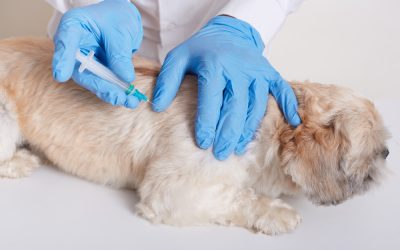Is My Dog Depressed? Here’s How You Can Tell

What is Dog Depression?
Dogs, like humans, can experience periods of depression. Dog depression is a mental health condition characterized by persistent sadness, loss of interest, and changes in behavior and physical well-being.
Dogs are highly social and intelligent animals, and their emotional needs are just as important as their physical needs. When a dog is depressed, it can significantly impact its quality of life and overall health. Understanding the causes, signs, and treatment options for dog depression can help pet owners provide the necessary support and care their beloved companions need.
Common Signs of Dog Depression
Recognizing the signs of depression in dogs can be challenging, as they may not always be as obvious as in humans. However, several behavioral and physical cues can indicate a dog is struggling with depression:
- Loss of Interest: A depressed dog may show a decreased interest in activities they once enjoyed, such as playing, going for walks, or interacting with their owners.
- Changes in Appetite: Some depressed dogs may lose their appetite, while others may overeat as a coping mechanism.
- Lethargy and Fatigue: Depressed dogs may appear lethargic, sleeping more than usual, or lacking energy.
- Withdrawal and Isolation: Depressed dogs may isolate themselves from their owners or other family members, preferring to spend time alone.
- Behavioral Changes: Depressed dogs may exhibit changes in their behavior, such as increased irritability, aggression, or excessive barking or whining.
- Digestive Issues: Some depressed dogs may experience digestive problems, such as diarrhea or constipation.
- Lack of Enthusiasm: A depressed dog may appear disinterested or less enthusiastic about activities and interactions they once enjoyed.
Causes of Dog Depression
Several factors can contribute to the development of depression in dogs, including:
- Lack of Stimulation: Dogs that are left alone for long periods or don’t receive enough physical and mental stimulation may become bored, anxious, and depressed.
- Chronic Pain or Illness: Underlying health conditions, such as arthritis, cancer, or chronic pain, can lead to depression in dogs.
- Genetics and Breed Predispositions: Some breeds, such as Labrador Retrievers and Golden Retrievers, may be more prone to depression due to genetic factors.
- Lack of Exercise and Socialization: Dogs that don’t receive adequate physical and social stimulation may become bored and depressed.
- Traumatic Experiences: Dogs that have experienced traumatic events, such as abuse or neglect, may be more susceptible to developing depression.
Possible Underlying Health Issues of Dog Depression
It’s important to note that depression in dogs can sometimes be a symptom of an underlying health condition. Some potential physical issues that may contribute to or cause depression in dogs include:
- Chronic Pain: Conditions like arthritis, hip dysplasia, or other musculoskeletal problems can lead to chronic pain and discomfort, which can trigger depression.
- Endocrine Disorders: Imbalances in hormones, such as those associated with thyroid or adrenal gland dysfunction, can contribute to mood changes and depression.
- Neurological Conditions: Conditions affecting the brain, such as cognitive dysfunction or brain tumors, can also lead to depression in dogs.
- Nutritional Deficiencies: Certain vitamin or mineral deficiencies, such as a lack of omega-3 fatty acids, can impact a dog’s mood and overall well-being.
If your dog is displaying signs of depression, it’s important to have them examined by a veterinarian to rule out any underlying physical health issues.
Major Triggers for Dog Depression
In addition to the underlying causes, several major life events can trigger or exacerbate depression in dogs.
- Life Changes: Major life changes, such as the loss of a family member, the addition of a new family member, or a move to a new home, can be stressful and trigger depression in dogs.
- Loss of a Companion: The death or loss of a human or animal companion can be a significant trigger for depression in dogs.
- Changes in Routine: Disruptions to a dog’s daily routine, such as a change in work schedules or the absence of a family member, can lead to distress and depression.
- Relocation: Moving to a new home or environment can be a significant source of stress and trigger depression in some dogs.
Breed Predispositions to Depression
While any dog can experience depression, certain breeds may be more prone to the condition due to their genetic makeup and temperament. Some breeds that are more susceptible to depression include:
- Labrador Retrievers
- Golden Retrievers
- Cocker Spaniels
- Poodles
- Bulldogs
- German Shepherds
- Boxers
- Beagles
- Cavalier King Charles Spaniels
- Bernese Mountain Dogs
It’s important to note that while these breeds may be more predisposed to depression, any dog can develop the condition, regardless of their breed.
How to Help a Depressed Dog?
If you suspect your dog is struggling with depression, there are several steps you can take to provide them with the support and care they need:
Creating a Supportive Environment
- Establish a Consistent Routine: Dogs thrive on predictability, so maintaining a consistent daily routine can help alleviate stress and provide a sense of security.
- Provide a Comfortable Living Space: Ensure your dog has a quiet, cozy space to rest and retreat to when they need some alone time.
- Minimize Stressors: Identify and address any potential sources of stress in your dog’s environment, such as loud noises, changes in the household, or the presence of unfamiliar people or animals.
Physical and Mental Stimulation
- Increase Exercise: Regular physical activity, such as walks, playtime, and interactive games, can help boost your dog’s mood and overall well-being.
- Engage in Mental Stimulation: Provide your dog with puzzle toys, obedience training, or other activities that challenge their cognitive abilities and prevent boredom.
- Introduce New Experiences: Expose your dog to new sights, sounds, and experiences to keep them engaged and interested in their environment.
Bonding and Socialization
- Spend Quality Time Together: Set aside dedicated time each day to engage in positive interactions with your dog, such as petting, cuddling, or playing.
- Encourage Social Interactions: If appropriate, arrange for your dog to interact with other well-behaved dogs or people to help alleviate feelings of isolation and loneliness.
- Consider a Companion: In some cases, adding a new furry friend to the household can help alleviate depression in a dog, providing them with a playmate and source of companionship.
Professional Help and Treatment Options
If your dog’s depression persists or worsens, it’s important to seek professional help from a veterinarian or a certified animal behaviorist. They can help determine the underlying cause of the depression and recommend appropriate treatment options, which may include:
- Medication: In some cases, your veterinarian may prescribe antidepressant or anti-anxiety medication to help manage your dog’s depression.
- Behavioral Therapy: A certified animal behaviorist can work with you and your dog to develop a customized treatment plan that includes training techniques, environmental modifications, and other behavioral interventions.
- Holistic Approaches: Alternative therapies, such as acupuncture, massage, or herbal supplements, may also be beneficial for some depressed dogs.
When to Seek Professional Help for a Depressed Dog?
If your dog’s depression persists or worsens, it’s important to seek professional help from a veterinarian or a certified animal behaviorist. Some signs that indicate it’s time to seek professional assistance include:
- Severe Changes in Behavior: If your dog’s depression leads to significant changes in their behavior, such as aggression, self-harm, or a complete withdrawal from their normal activities, it’s crucial to get them evaluated by a professional.
- Lack of Response to Home Interventions: If your efforts to create a supportive environment, provide physical and mental stimulation, and encourage bonding and socialization don’t seem to be helping, it may be time to consult a professional.
- Suspected Underlying Health Issues: If you suspect your dog’s depression may be related to an underlying health condition, it’s important to have them examined by a veterinarian to rule out any physical causes.
- Persistent or Worsening Symptoms: If your dog’s depression symptoms persist for more than a few weeks or continue to worsen, it’s best to seek professional help to ensure they receive the appropriate treatment and support.
Remember, early intervention and professional guidance can make a significant difference in helping your dog overcome depression and regain their joy and zest for life.
How Can Odie Pet Insurance Make Your Vet Visit Less Expensive?
Pet insurance can be a valuable tool in managing the costs of treating dog depression and other veterinary expenses. By having a pet insurance policy in place, you can have peace of mind knowing that you can provide medical care for your furry companion without worrying about the financial burden. Pet insurance can help cover the costs of veterinary consultations, diagnostic tests, medications, and even specialized treatments if required.
Reimbursement
This method is the most common for pet insurance companies. You pay out of pocket for the veterinarian bill, and then the insurance company reimburses you for what’s covered under the insurance plan. The steps look like this.
- You pay the vet bill after your dog’s visit.
- You fill out the pet insurance claim form.
- Submit the claim form and other required documentation to the insurer.
- After the claim is approved, you will be reimbursed for eligible expenses.
Odie’s Illness and Injury pet health insurance plan offers comprehensive coverage for your dog.
What Does Odie Pet Insurance Cover?
Pet insurance covers various veterinary expenses, providing financial protection and peace of mind for pet owners. Here are the details of the coverage options offered by Odie Pet Insurance:
Illness & Injury Plan
The Illness & Injury Plan is an all-inclusive insurance plan designed to cover a wide range of medical needs for your pet. This plan includes comprehensive coverage for various illnesses, injuries, and veterinary services. Some of the covered items include:
- Veterinary exams and consultations
- Diagnostics (e.g., X-rays, lab tests)
- Prescribed medications
- Surgeries and hospitalization
- Rehabilitation, acupuncture, or chiropractic treatments
- Medically necessary supplies
- Euthanasia and cremation
The Wellness Plan
The Wellness Plan is a monthly membership that focuses on preventive care and covers routine veterinary services.
- Provides reimbursements for routine care items such as wellness visits (exams and vaccines), testing and parasite prevention, dental cleanings and at-home dental care, vitamins, supplements, and more.
- Through Odie’s partnership with Petivity, a leader in smart pet products and proactive care, Wellness Plan members can also receive reimbursements for Petivity devices and health kits, as well as eligible Purina food and supplements.
- Total reimbursement up to $700 per year.





